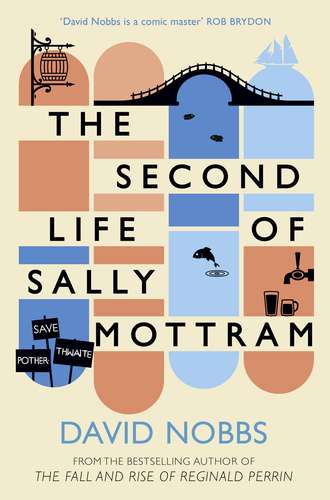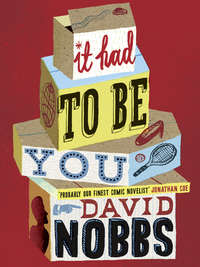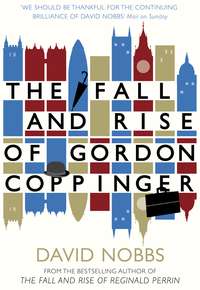
Полная версия
The Second Life of Sally Mottram
‘See them? See who?’
‘Arnold! You aren’t stupid. Don’t pretend to be. Them. Our new neighbours.’
Arnold’s mouth dropped open. He looked as if he’d had a stroke. He could see his appalled face staring out at him from behind Jill’s still-lovely face in the mirror. It was a bad moment. He was terrified of having a stroke, and ending up looking as he looked at this moment, and it was painful to see his face there, haggard, rigid and grey, just behind hers. She looked infuriatingly attractive still, the softness of her auburn hair, the strong curves of the nostrils, the elegance of the upper lip. Even the lines of her face, because they came from smiles more than from grimaces, enhanced her charm. He looked so much older than her. He was older, but only by a year, seventy-three to her seventy-two. No, the picture he saw in her mirror in her bathroom did not please him. But worse even than that was her announcement. Going round to see them!
‘See them, Jill? Why?’
‘Welcome them. See if they need anything. Don’t you want to be friendly?’
‘Of course I do. If they’re the sort of people we want to be friendly with. But they might be Jehovah’s Witnesses. They might be shoplifters. They might be Liberal Democrats. They might be Catholics. They might be vegetarians. They might be Welsh.’
‘They might be Welsh vegetarian Liberal Democrat Catholic shoplifters.’
‘Exactly. Now do you see why I don’t want you to just charge round there?’
‘So how do you propose that we find out if they’re our sort of people? Do we send them a questionnaire?’
‘Don’t be silly. We observe them. We listen. Do they argue? Do they shout? What sort of music do they play? Does he put the box on when he mows the lawn? Do they hang out the washing in a seemly manner? What quality are their underclothes? Do they put the bins out properly? Do they have dogs?’
‘How many times do they pee in the night?’
‘You’re not taking this seriously.’
Jill turned round, away from the mirror, to give him a sober look.
‘I am, you know,’ she said. ‘We’ve been attached on to an empty house for more than two years. This means change, this could be the end of paradise, of course we’re edgy, but we’re human beings, and they’ll be knackered, and they’ll be edgy too, they’ll need cheering up, I would think, coming to Potherthwaite from Chichester, I would be … so …’
‘I wish you wouldn’t keep running Potherthwaite down, Jill. It isn’t Venice, but it’s home. And you only run it down to rile me.’
Arnold was writing a history of Potherthwaite. It was called ‘A Complete History of Potherthwaite’. It was very long already, because he was unable to leave anything out, now that he had described it as complete, but also because he was terrified of finishing it, which was in truth why he had described it as complete.
‘They’ll be stressed. They may not have anything to cook with. I’m going to invite them for supper.’
‘Jill. This is recklessness personified.’
‘Yes. Let’s live a little.’
Arnold left the bathroom quietly, shut the door carefully, left her to it. He had almost said ‘I don’t want to live a little, I’m seventy-three’, but luckily he had thought better of it.
So twenty minutes later, having titivated herself to her satisfaction, and looking, she knew, rather stunning for a seventy-two-year-old, Jill called on the neighbours.
There were eight identical buildings in the cul-de-sac, four on each side of the road. Each building was divided into two identical residences, dignified and solemn in dark, stern stone, listed buildings on which no bright paint could be used. The new neighbours’ house was joined to the Busses’ on the southern side.
In the slowly fading light of a day that had never been fully light, Jill strode up the wilderness that was the neglected front garden of number 9.
She rang the doorbell, and wondered what Arnold would say if they were Muslims. She heard a key and then another key – what were these people frightened of? – and suddenly the front door was open.
The woman who was standing there was shorter than Jill, older than Jill, less attractive than Jill, but could have looked a great deal better than she did if she had made the best of herself. True, she had just endured a tiring journey, but Jill knew that this woman had long ago given up making the best of herself, and this irritated her.
They introduced themselves. The woman’s name was Olive Patterson. Jill didn’t waste time on small talk.
‘I wondered … I expect you’ve had a long journey, you must be tired … I wondered … because I don’t expect you’ll have unpacked your cooking utensils and things, Arnold and I … that’s my husband … we wondered … would you like to pop round for a bit of supper tonight?’
Confusion painted a faint red glow on to Olive Patterson’s pallid cheeks.
‘Oh, that’s so kind of you,’ said Olive. ‘So kind. No, it is, that is so kind, really, really kind, but really we’re … we’re fine, we’re all right … and I mean we had a sandwich in the car, at a service station … well, we had it in the car because you don’t want to both leave the car at the same time, with so much stuff in it, do you? I mean, who can you trust these days? You can’t, can you? So, no, we’re all right, but thank you, thank you again, we so appreciate … Harry … that’s my husband … will really appreciate your offer … but we don’t want to be a nuisance, and we really will be all right, honestly, but, as I say, that is so kind, thank you, but … as I say, another time.’
So Jill went back home, feeling strangely disappointed, but when Olive told Harry what she had said (though not at such great length) he exploded. He told her that in his opinion it was rude to refuse such a friendly offer, it was the first good thing that had happened all day, and he was going round to say they’d changed their minds. Olive pleaded with him – it would make her look silly. He told her that she was silly, and off he went.
A minute or two later, he met Jill’s eyes for the first time, and they held each other’s eyes a second or two longer than might have been expected at the door of a listed building in a cul-de-sac in Potherthwaite at the darkening death of a gloomy late winter’s day. He told her that if the offer was still on they would be delighted. She told him that the offer was indeed still on, and he was indeed delighted.
Bang on half past seven – Olive hated to be late – Jill led the Pattersons into the lounge, which was a large, high-ceilinged room with a chandelier, furnished with a curious mix of Arnold’s reticence and Jill’s ebullience. Jill had dressed down, Olive had dressed up, but Jill still looked the smarter. Arnold looked formal and old-fashioned in jacket and tie and a pale blue shirt with silver cufflinks. Harry was in full ‘they’ll know we haven’t had time to unpack’ mode. How different the two men were: Arnold tall and slim and grizzled, with salt-and-pepper hair and a very obedient little salt-and-pepper moustache; Harry short, not fat but bursting at the seams of his casual clothes, and as bald as a balloon.
Harry glanced round the room, taking in the reticent chairs and the ebullient vases, and said, ‘Nice gaff. Nice room. Just trying to guess, who bought what?’
‘Harry!’ said Olive.
‘I embarrass her,’ said Harry complacently. ‘Sorry, doll.’
‘This is so kind of you,’ said Olive, forced into speech.
‘What are neighbours for?’ said Arnold gravely.
Jill was puzzled by a rather odd look that had passed between Olive and Arnold, almost an exchange of sign language. It was time to leap into action.
‘Now, what would we all like to drink?’ she asked.
‘A small sherry, please,’ said Olive shyly, half blushing at her boldness in asking for alcohol at all. I don’t want to be beholden, said her blush.
‘A gin and tonic, please,’ said Harry with a huge grin. Large one please if poss, said his grin.
‘Usual, Arnold?’
‘Of course,’ said Arnold complacently.
‘Right. I’ll just go and get them,’ said Jill, looking meaningfully at Arnold, for whom the look clearly had no meaning.
‘Let me help,’ said Harry hastily.
‘That’s very kind,’ said Jill, looking not at him but at Arnold.
When Jill and Harry had left the room, there was a moment’s silence. Olive broke it.
‘I thought, “Is it? It can’t be.” But it is, isn’t it?’
‘Oh, yes,’ said Arnold. ‘Oh yes, Olive. It is indeed.’
THREE
Purely routine
The policeman had explained to Sally that because there was no suicide note they had to make certain inquiries. It was purely routine. Had she any idea why Barry had killed himself?
She had shaken her head.
Strangely, she had felt nothing. ‘Cry if you want to,’ a female officer had said. ‘Feel free.’ But she hadn’t been able to.
‘I’m afraid nobody can go upstairs,’ Inspector Pellet had explained. ‘It’s designated a crime scene. Purely routine.’
He had made gestures to the female officer to get Sally out of the way. He hadn’t wanted her to be in the house while they examined the rope, tested for fingerprints, searched for minute traces of thread dropped from clothes, or earth brought in on shoes. It wouldn’t be a thorough search, of course – there was really no doubt that he’d killed himself – but things had to be done by the book these days.
The female officer, PC Cartwright, had put her arm round Sally, to lead her towards the door of her own home. Inspector Pellet had turned and said, ‘Thank you, Mrs Mottram. We don’t need to bother you again tonight, and we have no reason to think that this is anything but …’ He had hesitated. He hadn’t wanted to say the word. He’d been to a two-day seminar on Tact and Consideration in the Isle of Wight in 2007, and it had stayed with him. ‘… what it appears to be. However, an officer will want to talk to you in the morning, when you’ve …’ He had been about to say ‘had a good night’s sleep’ but had realized that this was unlikely. He had abandoned that sentence and had asked, uneasily, ‘And … um … we … um … we might have to ask to borrow your computer. So … um … if you’re needing to use it …’ He had let that sentence go unfinished too.
‘I don’t use the computer,’ she had said.
‘Ah!’
Inspector Pellet had winced. He had realized that the emphasis he had put on that ‘Ah!’ might carry with it the implication that, in the knowledge that she would never be able to discover them, it was therefore possible that this seemingly innocent lawyer had thought it safe to save large numbers of horribly indecent photos of young children and domestic pets, or of the wives of fellow lawyers caught in flagrante. Or both. In truth the inspector was a nice, sensitive family man and had driven himself close to depression due to his attempts to follow what he had learnt at the seminar all those years ago.
Luckily Sally had been so shattered and so bewildered, and also so innocent, that she had been completely incapable of picking up any implications, let alone ones so extreme. PC Cartwright had led her out of her own front door, pushing her in such a direction that she would have risked dislocating her neck if she had attempted to turn to take one last look at her husband hanging there.
When they were outside, PC Cartwright had asked her, ‘Have you any children you could go to?’
‘Well, my daughter, I suppose,’ she had said.
‘Right. Good. And where does she live?’
‘New Zealand. That’s the only bugbear.’
PC Cartwright had looked at her in astonishment.
‘I probably won’t,’ Sally had added.
‘No. I meant … now. For a couple of hours like, while they … till you can return.’
‘Oh. Of course. I’m sorry. I was being stupid.’
‘No, not at all, lovey. You’re in shock.’
‘Yes. Yes, I am. No. No, I haven’t. My son’s in Barnet.’
‘Neighbours?’
‘Well … It’s not the most … um …’
‘… sociable street in Potherthwaite?’
‘No. And my husband isn’t … wasn’t … oh God … oh God …’
‘Now now. There there. There … um … surely there must be somebody?’
‘Well, there’s the Hammonds, but … I think they’re in Tenerife. Peter Sparling’s around, I saw him earlier with Kenneth. I could go to them, I suppose.’
‘Oh. Right. Well. Good. I’ll take you. Can you walk it?’
‘Oh yes. It’s only five houses.’
PC Cartwright had led Sally slowly along the road. If there had been any passers-by, they might have thought she was disabled.
‘I’m sure they’ll look after you,’ she’d said, and then she’d lowered her voice, as if she hadn’t wanted her progressive views to be overheard by any colleagues who might be lurking in the bushes. ‘Gays can be very considerate and understanding. It’s with the female hormones, I suppose.’
‘Gays?’
‘Peter and Kenneth.’
‘Oh. No no. Kenneth’s a Labrador.’
PC Cartwright had looked astonished, then shocked, then just bewildered. She had entirely forgotten that she had been to an afternoon seminar on Not Making Assumptions at a moated country house outside Droitwich in 2009. And if she had remembered that she had been, she would still have forgotten what she had learnt.
‘P’r’aps you should just wait a moment at the gate, love,’ PC Cartwright had said, when they arrived at the Sparlings’ house. ‘Best for me to explain, p’r’aps.’
So Sally had stood in the cold at the gate of ‘Ambleside’, and had endured the unpleasant experience of watching two people discussing her, and wondering what had been said when Peter Sparling had shaken his head, and when PC Cartwright had suddenly turned round to have a look at her by the gate.
Then they had shaken hands and Peter had come striding over the cut grass.
‘Sally! Sally! I am so sorry,’ he’d said.
‘Thank you.’
‘Come in. Come in.’
‘Thank you. Thank you.’
‘Will you be all right, lovey?’ PC Cartwright had asked.
‘I’ll be fine. Thank you.’
Sally was going to be brave. She wasn’t even going to be upset by this woman she had never met before calling her ‘lovey’.
‘We’ll come and let you know when it’s all right to go back.’
‘Thank you.’
‘Not long, I wouldn’t think.’
‘Thank you.’
‘Purely routine, lovey.’
‘Thank you.’
Myfanwy and Peter Sparling had made Sally comfortable by the roaring fire, and had plied her with gin and tonic. Myfanwy, who talked like a mountain stream, had found more words for ‘sorry’ than most people even knew. Sally had told them of PC Cartwright’s confusion over Kenneth. They’d had to laugh. In fact Sally had laughed too, and in that charged moment the laughter had become hysterical, and then, just as the laughter had died, Kenneth had farted, and none of them had been able to look at each other. They had controlled themselves heroically, and in the flat silence that always follows hysterics, Peter and Myfanwy had apologized for laughing, and Sally had said, ‘No, please. I wanted you to laugh. That’s why I told you. Life must go on.’
And she had thought, ‘Must it?’ Back home all alone now she recalled that moment and she thought, ‘Must it? But how? How can it?’
After that, they had talked soberly. The Sparlings had raised Barry to something only just short of a saint, the question of why he had done it had been raised but not answered, and Sally had said, ‘But why didn’t he leave a note?’ with such force that even Myfanwy had made no attempt to provide a facile answer. Sally had seen that Myfanwy was very close to tears, the easy yet genuine tears of South Wales. Myfanwy had lowered the emotional tension but only slightly by saying, ‘I can’t believe that only … what would it be? … four hours ago … Peter and you were talking quite casually having no idea what had happened. I can’t get my head round it.’ And then they had reminisced about a trip the four of them had made to Whitby for fish and chips at the Magpie, and they had agreed that they should have done that sort of thing more often, but you don’t know what’s going to happen, do you? That’s right, you don’t. Just as well, perhaps. And Peter had said, ‘I can’t get my head round it either, Sally. There we were, you and I, talking about the weather …’ a frown had passed across his face as he’d remembered Sally’s strange comment about lightning and tsunamis ‘… and we had no idea what had happened,’ and all the time Sally had been wondering, underneath the talk and the socializing and the memories and the gin and tonic and the log fire, how far they had got at ‘The Larches’, whether they had taken Barry down yet.
Father Time is a playful patriarch. Sally would have said that they had been sitting there for two hours at least, but it turned out that it had only been just over an hour before PC Cartwright had come to tell her that it was all right for her to go home.
She hadn’t wanted to have to talk any more. There was nothing anybody could do. The rest of her life was up to her now, though of course she had no idea of the immense consequences of that thought. But she hadn’t liked to leave straight away. Even at this dreadful moment that would have seemed like a betrayal of the social code here in the posh end of Potherthwaite.
At last she had decided that it would be all right to leave. The Sparlings had insisted on escorting her home, and she had been glad of that. The street lamps in Oxford Road were few and dim, and there was no chance of the moon breaking through the thick motionless clouds.
They had offered to come in. They had invited her to collect a few things and go back and stay with them for the night, and she had known that they had meant it most sincerely. It had been tempting, and she had very nearly agreed.
Now that she stood, all alone in her sitting room, all alone in the house, she felt hugely grateful to the Sparlings, but she would resist the temptation to go back. She could hardly bear to stay in the house on her own, though. Was there anywhere else she could go?
Of course there was.
There was even a place to which she wanted to go.
There was a place to which she must go.
FOUR
A lovely evening
Olive’s heart sank at the sight of the dining table. Jill had laid it beautifully, and it was lit by two tall candles in handsome, gleaming candlesticks. The room was quite small, with pale green wallpaper. Smart red curtains covered the French windows that led to the back garden. There were six decanters on the sideboard. She would never match this.
She caught Arnold’s glance and had an uneasy feeling that he could read her mind.
She didn’t like the starter, which was a peach stuffed with a mixture of yoghourt and mild spices. She didn’t like peaches or yoghourt, she didn’t like mixtures, and she didn’t like mild spices, although she didn’t dislike them as much as she disliked spices that weren’t mild. It crossed her mind that they would need to find a good doctor pretty quickly. She would miss Dr Renwick. She hoped Harry wouldn’t ask them who their doctor was. They would have to go to him, if he did, and she didn’t want the state of her kidneys to become public knowledge throughout the cul-de-sac.
‘This is just something rustled up from the store cupboard,’ said Jill.
‘It’s delicious,’ said Olive. ‘How clever of you to be able to rustle things up.’
Harry gave her his ‘don’t overdo the compliments, it’s a form of running yourself down’ frown, and of course, now that she had said it was delicious, she would have to eat every mouthful.
‘I always eat slowly when I love things,’ she said.
Harry gave her his ‘when you’re in a hole, don’t dig’ frown.
The others had finished. She could hardly get it down. To help herself get through it she thought back to that brief romance forty-eight years ago. Well, not so brief. A few months. But a few months in which they’d had so much shyness and ignorance to overcome, so many inhibitions to let out, that it had never reached its climax, or any climax. She wondered what her life would have been like if she had married Arnold. She wasn’t attracted to him now. She couldn’t imagine life with him. She felt that she ought to say something, and was on the point of asking him if he’d ever been back to Cheltenham, when she realized that this question would have let the cat well and truly out of the bag.
In their brief, urgent, almost whispered chat, back in the chandeliered lounge, while Harry had helped Jill fix the drinks, after consideration of the fact that it was a small world, after the horrified realization that they had last seen each other forty-eight years ago, after the lies about how kindly time had treated them, Arnold had made it clear that he didn’t want to tell Jill and Harry about it. She had thought this unwise. There was nothing to hide, so why hide it? She would have been horrified if she had known his reason, which was partly mere laziness and dislike of emotion past, present or future, but also at least a touch of shame. Olive was not now a trophy about whom one would boast.
At last, in the chandeliered dining room, she had finished her starter. She smiled at the company. It was evident to them that the smile was hard work.
‘Delicious,’ she said.
‘I’ll get the main course.’
Harry and Olive both realized that Arnold wouldn’t lift a finger. He’d been Head of History for twenty-nine years, after all. The fact that there had only ever been one other teacher in the department, and he had been either on work experience or a supply teacher, was of no account. Arnold had gone down in history as Head of History. He had thought it a great job in this modern world – to be paid to live in the past.
Harry waited a few seconds – he was not entirely insensitive, despite what people said – and called out, ‘Can I help?’
‘Thank you,’ called out Jill from the kitchen.
Harry hurried off, and a curious thing happened. Both Arnold and Olive realized that they had nothing whatsoever to say to each other. They couldn’t analyse their months of ‘walking out’ as it had been called in those distant days. It had been enjoyable, they had both felt romantic at times, but nothing worth recalling had happened. Do you remember the day we got the dates mixed up and went to the wrong film? Do you remember that French restaurant where we didn’t know what globe artichokes were and had to be shown how to eat them? Do you remember when I snagged my stockings on the door of the taxi? It was not the stuff of rich reminiscence.
Nor was ‘So what have you been up to?’ likely to yield a great harvest.
When I qualified as a teacher I taught history in Hereford and then in Hartlepool, where I met Jill. Shortly after that I was appointed Head of Department here, and remained it till I retired. I’m writing the definitive book on the history of Potherthwaite, which is also the only book on the history of Potherthwaite.
I was Harry’s secretary. He was fun. He was good-looking. He had hair in those days. We married young, had three children, all of whom have done just about OK. I stayed as Harry’s secretary. He was in and out of things, no one else could understand his affairs. His business affairs, I mean. He’s never had the other kind. Well, as far as I know. No time. We’ve lived in nine houses. Harry has a boat. I hate boats.
None of that was worth going into, so they didn’t go into it. But the curious part of it was that in not having anything to say they found common ground. They hoped Harry and Jill would take at least a few minutes; they were restful together.
And Arnold smiled. Olive could have had no idea just how rare his smiles had become – there hadn’t been many in Cheltenham, but lately there had been very, very few. But when she saw that smile, just a little frisson of regret passed through her, and she understood for the first time what Jill had once seen in him.
The smile emboldened her to ask a question.
‘Don’t you think we should tell them? Wouldn’t it be easier? Don’t you think if we don’t we’ll be treading on eggshells?’







